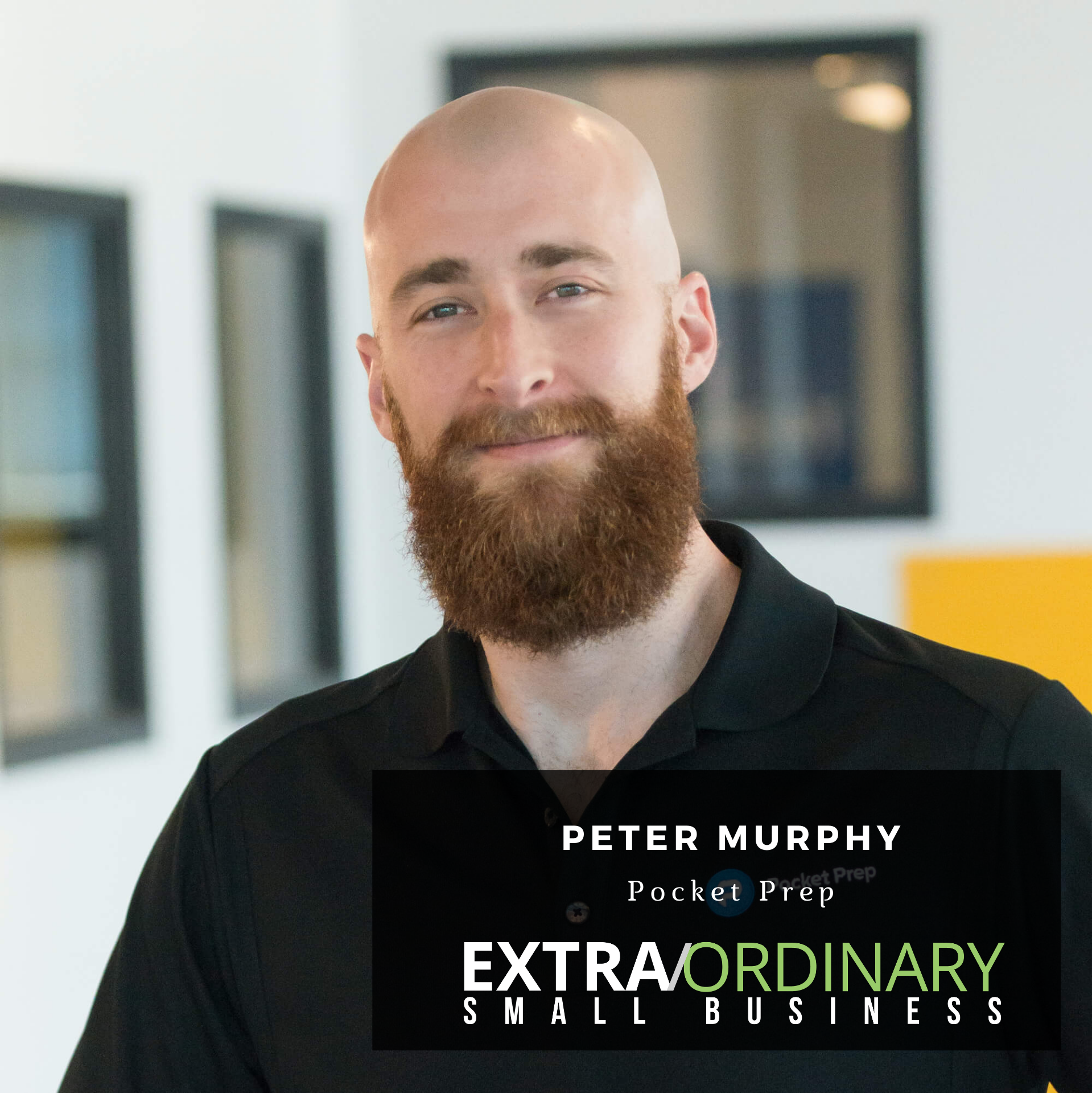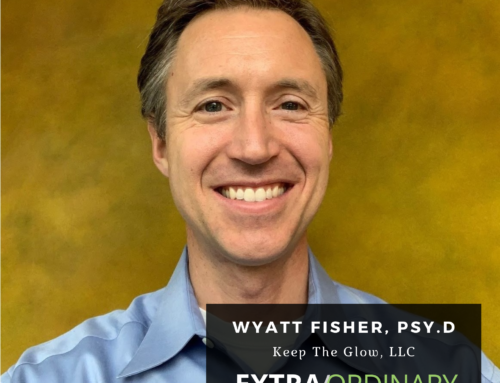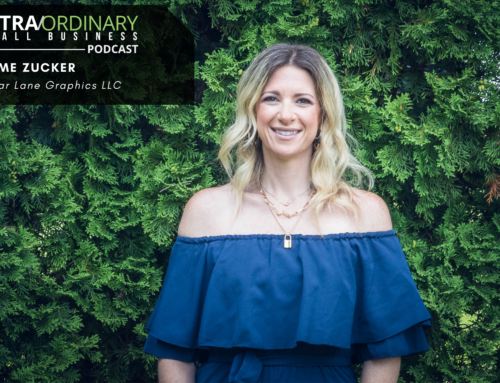
Let’s start with the one-liner – what is your company? What do you sell?
Peter Murphy: We are Pocket Prep, a mobile test prep company that provides effective, convenient, and engaging test prep for more than 100 standardized exams. The company assists students and professionals in earning challenging credentials spanning the industries of nursing, medical, fitness, IT, social work, and other professional fields.
Tell us your origin story.
Peter Murphy: We care about people passing exams because we’ve been there. Co-founders Ken Gillette and Peter Murphy faced expensive, high-stakes tests for career-promoting professional credentials while they were co-workers at Lockheed Martin. Like tens of thousands of other Americans, they shelled out hundreds of dollars to register and buy the materials they thought would improve their chances of passing. After hauling textbooks, flashcards, and study guides to costly test prep classes, they founded Pocket Prep to help people more effectively and inexpensively prepare for important assessments.
Did you need a lot of capital to start your business? How did you finance your business in the beginning?
Peter Murphy: We started the company with a small boot-strapped investment ($1,800) between the two co-founders, myself and Ken Gillette. All proceeds were reinvested to scale the business and we continue to do so to this day. We do not have any outside investors and do not have any plans to do so; we prefer to captain our own ship.
Was this an area for which you had passion before you started the business, or did you see a need and move to serve it?
Peter Murphy: Yes, my mother was a school teacher and had to buy all of her own supplies for her students. Affordability in education was huge and we’re fighting to make that a reality for all learners. I was also studying for a very niche exam called the CPIM. Our aerospace employer got us the training but we were on the hook for our own prep material. I created my own multiple-choice questions and answers to help study, which was the foundation for Pocket Prep — we had the content, we just needed a convenient way to serve it up.
How has the business evolved over time?
Peter Murphy: We started with just the two founders, Ken and I, and used dozens of contractors to create the app, our practice content, and handle back-office work. As of July 2020, we have 15 employees and still rely heavily on part-time subject matter experts to curate our award-winning exam prep curricula. We have our own internal development, marketing, design, B2B, and customer service teams, which has allowed us to reduce the cost of operations and pass those savings on to our customers.
How did you grow? Tell us about a moment, or moments, in the early days that were “big moments” for the business. What moved the needle substantially?
Peter Murphy: We introduced a money-back “Pass Guarantee” back in the fall of 2018 that really got people excited to study. By taking the financial risk out of the equation, we made an already stressful situation (prepping for a career-defining exam) that much easier to handle. We saw a 35% increase in revenue from that initiative.
Every successful small business owner has to navigate the world of expansion. And choosing how to expand is just as important as choosing how NOT to expand. Tell us about forks in the road on your journey.
Peter Murphy: As a bi-coastal company, the expansion of our team was as carefully crafted as the curricula we offer our customers. We set up non-technical work here in Seattle, WA, while our technical team was stationed in Durham, NC. It’s can sometimes be difficult to coordinate with the 3-hour timezone difference, but we manage just fine!
As you’ve grown, you’ve undoubtedly had to delegate. How did you tackle that challenge?
Peter Murphy: Learning to let go and trust the intelligent people you’ve brought into the fold can be tough. Fortunately for us, the demands of the business didn’t leave us much choice — the work had to get done and we needed smart people to help meet the business’s needs.
You know the axiom – no risk, no reward. Tell us about a time you took a big risk. Did it pay off? Did it fail? Or you had a completely different outcome than expected?
Peter Murphy: The biggest risk we’ve seen to date has been dropping the agencies that we’ve used along the way in favor of our own internal, full-time team. On paper, it always looks good — ‘we’re going to save X and gain Y so let’s do it’ — but there’s always this feeling of “what if it doesn’t work out?” I think having that mental check there is a good thing; it keeps you from misjudging the risk-reward axiom. Fortunately for us, moving to our own internal team was the best thing we’ve ever done.
Do you/did you have a co-founder or did you go at it alone? Tell us about that decision, and how that affected you as a leader.
Peter Murphy: Yes, Ken and I started the company together. Before we started Pocket Prep we both worked together in the same office at Lockheed Martin. We were friends first and found ourselves often sharing dreams of starting a business while working our day job. Ken and I are a great team and our strengths complement each other well. Having someone to share the burden of leadership with is a real plus; making decisions in a vacuum hasn’t been something that’s work well for either of us in the past.
Have you ever considered taking on additional partners, venture funding, or bank money to grow the company, or have you always bootstrapped?
Peter Murphy: We have no outside funding or help and plan to keep it that way for as long as possible.
Tell us about some of your sacrifices along your small business journey.
Peter Murphy: Ken and I both left outstanding careers with Lockheed Martin to pursue this venture, which has certainly paid off. There are days where we miss just being good employees and knocking out our work. There’s a sense of pride in being a part of a bigger picture; it’s also nice to just come home and leave your work at the office. Running your own business makes that last part much more challenging.
If for this business, what would you be doing as a career right now?
Peter Murphy: I’d be working towards middle-management in Aerospace.
Finish this sentence: “I would not be standing here today if not for ____”
Peter Murphy: Grit. You have to have Grit to make it in the entrepreneurial world. I once heard someone say “Pshh, I came up with the idea for Uber well before they did!” To which I responded, “What did you do about that idea?” — you have to take action; thoughts and plans are cheap. Action has cost.
What’s one piece of advice that you would give your 18-year-old self?
Peter Murphy: Drink less caffeine, it feels like a productivity boost at the moment but you’re actually just borrowing energy from your future self. The crash can be intense, mentally, and physically.




Leave A Comment